Mosquito bites, treatment, prevention and the latest news.
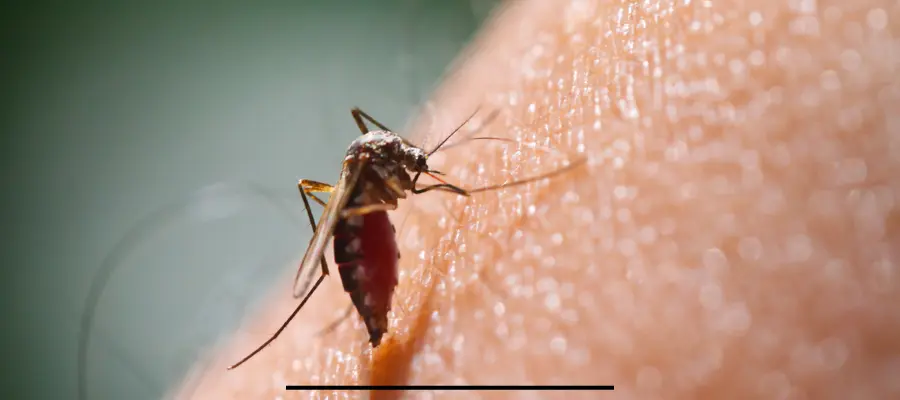
In this article we will look into the latest news on the mosquito population and development, what are mosquito bites, why are they so itchy and why some of us appear to be so attractive. What are the latest natural remedies and treatments for mosquito bites and what you can do to prevent getting bitten?
Table of contents
- Mosquito bites
- Symptoms of Mosquito Bites
- What makes us so attractive to Mosquitoes?
- Why are mosquito bites itchy?
- Why you should not scratch mosquito bites?
- When to seek medical help for a mosquito bite?
- How to stop mosquito bites from itching and mosquito bite relief?
- Protection against mosquitoes
- How to eliminate mosquitoes from your backyard?
- Latest news on Mosquito Diseases
Mosquito bites
When mosquitoes bite, a little bit of their saliva is deposited into your skin and proteins in mosquito saliva spark a mild allergic reaction from your immune system, which leads to inflammation and itching.
After a mosquito bite, a lump will appear. Occasionally a mosquito bite causes a large area of swelling, soreness and redness. This type of reaction, most common in children, is sometimes referred to as skeeter syndrome.
Symptoms of Mosquito Bites
Signs of mosquito bite include:
- A puffy, white and reddish bump that appears soon after the bite
- A hard, itchy, reddish-brown bump, or multiple bumps, appearing a day or so after the bite or bites
- Small blisters instead of hard bumps
- Dark spots that look like bruises
More severe reactions may be experienced by children and adults not previously exposed to the type of mosquito that bit them and also people with immune system disorders. Mosquito bites can potentially trigger a large area of swelling and redness accompanied by low-grade fever, hives and possible swollen lymph nodes.
Children are more likely to develop a severe reaction than are adults because many adults have had mosquito bites throughout their lives and become desensitized.
There are no specific cures or registered vaccines for most mosquito-borne diseases. Avoiding mosquito bites is the only way to protect yourself against them.
Viruses and parasites that are transmitted by mosquitoes can also cause illness and death in animals. Dog heartworm is caused by a parasitic worm passed on by mosquitoes which, in large numbers, can clog the dog’s heart and seriously affect blood flow.
What makes us so attractive to Mosquitoes?
When it comes to attraction, the allure can begin even before the mosquito sets eyes on you. There seems to be something about the way you—her dinner—smells from afar that makes you a desired target. While you are outside with friends or preparing the barbecue, that mosquito will go on the hunt and you will become the next meal.
Scientists already know there are differences among us that contribute to why some of us get bitten more than others. Those of us who exhale more carbon dioxide seems to be a natural beacon for mosquitoes, in particular. Researchers have also found a correlation with body size, with taller or larger people tending to attract more bites—perhaps because of their carbon dioxide output or body surface area. There is also some evidence women who are pregnant or at certain phases of the menstrual cycle are more attractive to mosquitoes. Other work has found that people infected with malaria are more attracted to malaria-carrying mosquitoes during their transmissible stage of infection.
Why are mosquito bites itchy?
When a mosquito draws blood with the tip of its mouth, it injects some of its own saliva, which contains an anticoagulant that prevents your blood from clotting around the proboscis. Your immune system recognizes the proteins as a foreign substance and your body produces an immediate attack. It releases a histamine reaction that causes the itching. The histamine also causes your blood vessels to enlarge, creating a circle, or swollen bump around the bite.
Your immune system could react to these allergies-inducing proteins for up to a week, which explains why an itchy bite can stay around for so long.
Not everyone has the same reaction, and some people will not even notice that they have been bitten. Over time people may also develop a tolerance to bites from mosquitoes of the same type. But if you travel and encounter new species, you will get a severe reaction again.
Different mosquitoes produce different reactions. For example, Aedes aegypti mosquitoes, which is the main vector for the Zika virus, feed during the day, with peak biting activity in the early morning and late afternoon hours. They don’t always cause an itchy reaction. They can bite without being noticed because it approaches from behind and bites on the ankles and elbows.
When should you worry about a mosquito bite?
While most mosquito bites are harmless and only cause mild itching and discomfort, there are times when you should be more concerned. If a mosquito bite is followed by intense swelling, heat, redness, or if pus develops, this may be a sign of an infection, and you should seek medical advice. Additionally, if you experience symptoms such as fever, headache, body aches, or unusual fatigue after a bite, especially if you’ve traveled to areas known for mosquito-borne diseases like malaria, dengue, or West Nile virus, it’s crucial to seek medical attention. These symptoms could indicate a more serious condition resulting from the mosquito bite. It’s always better to err on the side of caution if you feel unwell after a bite.
How long does it take for mosquito bites to go away?
For most people, mosquito bites typically resolve within 3 to 4 days. The swelling and redness should subside as the body naturally processes the saliva proteins introduced by the mosquito. However, in some cases, it may take up to a week for the itching and irritation to fully disappear, especially for individuals with sensitive skin or those experiencing stronger allergic reactions. For those with a condition like Skeeter Syndrome, where the body reacts more severely, the bite may last longer, sometimes up to two weeks. Regardless, if a bite persists beyond this or worsens over time, it’s a good idea to consult a healthcare provider to rule out infection or other complications.
Why you should not scratch mosquito bites.
You will want to scratch the itch, but that will only make it itchier. When you scratch a mosquito bite your immune system releases compounds that create even more swelling and itching.
Scratching may also increase the risk of infection if it breaks the skin. If the area becomes infected, it will be much itchier and will take longer to heal.
Some of the infections may manifest as sores and blisters that are often filled with pus. An inflammation will often affect hair follicles of the skin and lead to folliculitis. When large areas of the skin and underlying tissues are affected, it is called cellulitis.
Both conditions will have to be treated with locally applied antibiotic creams and ointments while infections such as cellulitis may require oral antibiotic pills.
West Nile virus infection is also carried by mosquitoes. The symptoms include fever, headache, body aches, nausea, and vomiting. Complications can lead to meningitis which can result in death.
When to seek medical help for a mosquito bite:
See your doctor if, after being bitten, there is a lot of swelling or pus, which indicated an infection.
Call an ambulance or visit the hospital if you have any of the following symptoms:
- Difficulty breathing
- Nausea, vomiting or diarrhoea
- A fast heart rate
- Dizziness or feeling faint
- Confusion, anxiety or agitation
- Difficulty swallowing
How to stop mosquito bites from itching and mosquito bite relief?
Antihistamines
This is an over-the-counter medication. It will help reduce inflammation and itching and it is a very effective and fast way to treat mosquito bites.
Applying heat
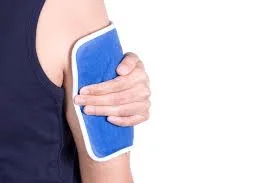 Applying heat to a mosquito bite may help reduce inflammation and itching. Locally administered concentrated heat leads to a fast reduction of symptoms. Usually, symptoms, including pain, disappear after 10 minutes of administration. All you have to do is heat up a metal spoon under hot tap water for a few minutes and press it directly against the bite. Hold it against your skin for a couple of minutes and take it off and the itch should be gone. However, this should be administered as soon as you are bitten before the enzymes spread deeper into your skin.
Applying heat to a mosquito bite may help reduce inflammation and itching. Locally administered concentrated heat leads to a fast reduction of symptoms. Usually, symptoms, including pain, disappear after 10 minutes of administration. All you have to do is heat up a metal spoon under hot tap water for a few minutes and press it directly against the bite. Hold it against your skin for a couple of minutes and take it off and the itch should be gone. However, this should be administered as soon as you are bitten before the enzymes spread deeper into your skin.
A cold compress
A cold compress can also do the trick. Anything containing essential oils like menthol, camphor, tea tree, eucalyptus, nutmeg and thymol is best. These ingredients have anti-inflammatory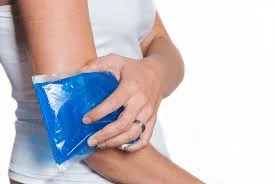 properties, helping to reduce pain, swelling and itching. Even something like toothpaste can work. Even though the reaction will still be there, it will give you temporary relief from itching. A simple ice cube will also numb down the itching.
properties, helping to reduce pain, swelling and itching. Even something like toothpaste can work. Even though the reaction will still be there, it will give you temporary relief from itching. A simple ice cube will also numb down the itching.
Your own saliva
There have been many experiences documented where people have experienced relief from itching of mosquito bites on the application of their own saliva to the itchy spot. It helps to reduce the itching because saliva has been proven to speed up tissue repair and has antibacterial properties. It also provides a moisturising effect on the itchy spot. So, if you don’t have anything else around this is a good option.
Apply Aloe Vera
Aloe Vera gel has been shown to have anti-inflammatory properties for wound healing and calming infections, The cool feeling of the gel may also soothe any itchiness.
Use a cold tea bag
Green and black tea’s anti-swelling effect may not be useful just for swollen eyes. Tea’s anti-inflammatory effects may help with the swelling. Soak the bag of green or black tea and put it in the fridge to cool down. Apply the cold tea bag over the bite to ease the itchiness.
Colloidal Silver
Colloidal Silver applied on insect bites will provide immediate relief. Apply directly to the bite, it will provide long-lasting immediate relief and will protect your skin from developing any infections. It will accelerate the healing process while simultaneously helping prevent infection from setting in.
Protection against mosquitoes
Over many years it has been proven that Mosquitoes are getting resistant to the pesticides that have been used to kill them. Melinda Hadi, PhD, an entomologist with the Swiss mosquito net manufacturer Vestergaard, says that resistance in Anopheles mosquitoes is up in several countries that have the biggest problems with malaria already.
Protecting ourselves when we do venture out is the most obvious response and something we can control. They include staying out of heavy bush and weeds, wearing protective clothing and appropriate insecticide, and most importantly, vigilantly checking ourselves for any symptoms.
Eliminating habitats for mosquitoes and ticks in private and public areas is critical. Any standing water is a hazard as it can create a breeding ground for mosquitoes.
How to eliminate mosquitoes from your backyard
- Dispose of all containers which hold water
- Stock ornamental ponds with mosquito-eating fish such as goldfish. Keep vegetation away from the water’s edge.
- Keep your swimming pool well chlorinated, filtered and free of dead leaves.
- Level or drain depressions in the ground that holds water.
- Fit mosquito-proof covers to vent pipes on septic tanks systems. It is recommended to seal all gaps around the lid and ensure leach drains are completely covered.
- Screen rainwater tanks with insect-proof mesh, including an inlet, overflow and inspection ports. Remove water that is getting held in gutters and check to see if they are blocked.
- Empty pot plants (especially bromeliads which hold water in their leaf axils). Make sure to empty this weekly.
Every week residents should empty, scrub, turn over, cover or throw out items that hold water.
Many people are unaware that some mosquitoes can even lay eggs in a container inside the home, such as flower vases, pots and containers and these need to be checked on a regular basis.
Wearing insect-repelling clothing if travelling to a heavy mosquito area.
Make sure to use mosquito repellent sprays or creams to repel mosquitoes from your body. Reapply every 4 hours.
Use mosquito sprays to repel mosquitoes from the area or mosquito trap systems to lure and break the mosquito breeding cycle.
To read more about different mosquito prevention systems, click here.
Read more about Mosquitoes with Pestrol:
The Best Ways To Repel Mosquitoes >
Mosquito-borne diseases in Australia >
The Best Mosquito Traps and How They Work >
Can Mosquitoes Spread Covid-19 Virus? >
Top 10 Tips For Outdoor Mosquito Problems >
What does la nina mean for mosquito plague? >
How Do I Get Rid of Mosquitoes >
Climate Change and Mosquito Populations: An Unexpected Twist in Disease Transmission >
Latest News on Mosquito Diseases.
September 2024 USA
As of late September 2024, the Eastern Equine Encephalitis (EEE) virus has been making headlines across the northeastern United States, particularly in states like New York, Massachusetts, and New Hampshire. This rare but potentially deadly virus is transmitted by mosquitoes and has a high fatality rate, with approximately 30% of those infected succumbing to the disease. New York recently reported its first human fatality from EEE in nearly a decade, prompting public health warnings from state officials. Several other cases have been confirmed in New England, raising concerns across the region.
Health experts are urging residents to take preventive measures, such as using insect repellent and avoiding outdoor activities during peak mosquito activity at dusk and dawn. The virus poses a significant threat until the first hard frost of the season kills off mosquito populations. The spread of EEE and other mosquito-borne diseases like West Nile virus has been attributed, in part, to climate change, with warmer temperatures and increased precipitation creating ideal conditions for mosquito breeding and expansion into new areas.
August 2024 Africa
Recent advances in genetic modification are showing promise in the fight against malaria, particularly in Africa. Researchers are focusing on using genetically modified mosquitoes to reduce malaria transmission. One approach involves releasing sterile male mosquitoes, which can mate with wild females but produce no offspring, effectively lowering mosquito populations. Another method, gene drive technology, aims to make female mosquitoes sterile, increasing the likelihood of passing on this trait to future generations. This could significantly decrease the population of malaria-carrying mosquitoes. While these technologies are still in the research phase, with safety and efficacy studies ongoing, they offer a potentially revolutionary tool in the global effort to combat malaria. Field trials of non-gene drive mosquitoes are planned for the near future in Burkina Faso, with gene drive mosquitoes expected to follow after further testing. Scientists are also studying the ecological impact to ensure minimal disruption to ecosystems.
August 2024 WA
A health alert has been issued in Western Australia’s Pilbara after two deaths from Murray Valley Encephalitis (MVE), a mosquito-borne virus. While MVE is mostly mild, about one in 800 infected individuals may develop severe brain infections, which can cause lifelong symptoms or even death. So far, four cases have been reported in 2024. With no available vaccine or specific treatment, the WA Health Department emphasizes preventing mosquito bites through protective clothing, repellent, and mosquito-proof gear. Mosquito control measures, including fog spraying and using drones to target eggs, have been intensified, especially in areas like Port Hedland. The alert extends to the Gascoyne and Midwest regions, with increased tourist activity expected during the winter months.
Our products for mosquito bites
NoBites Insect Repellent Spray – 100ml
8 reviews Original price was: $23.95.$16.90Current price is: $16.90.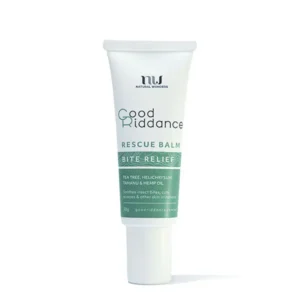
Good Riddance Rescue Balm
$11.90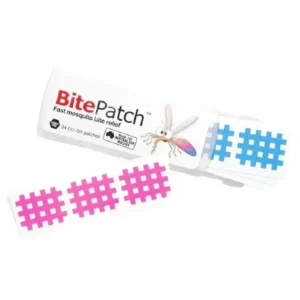





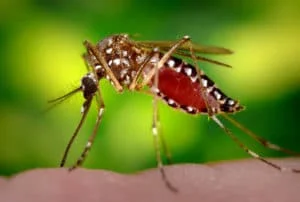
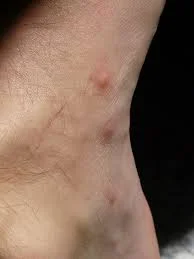
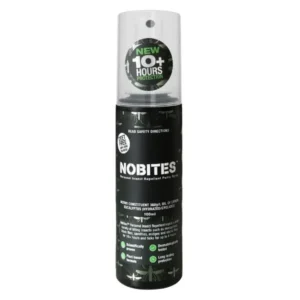
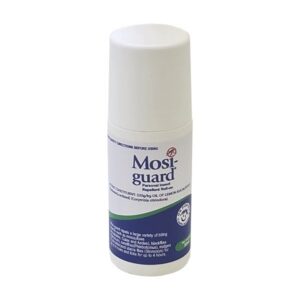
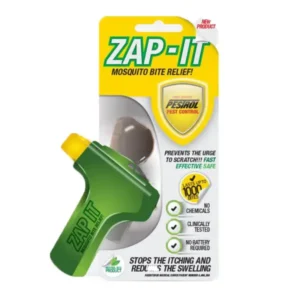
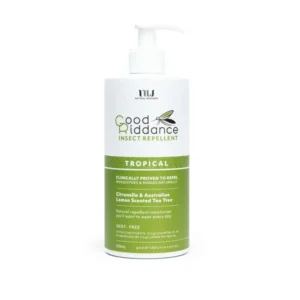
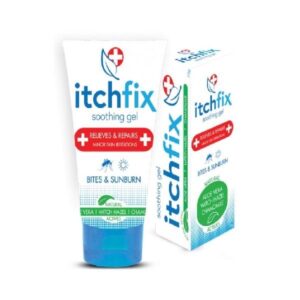
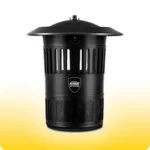 Mosquito Traps
Mosquito Traps